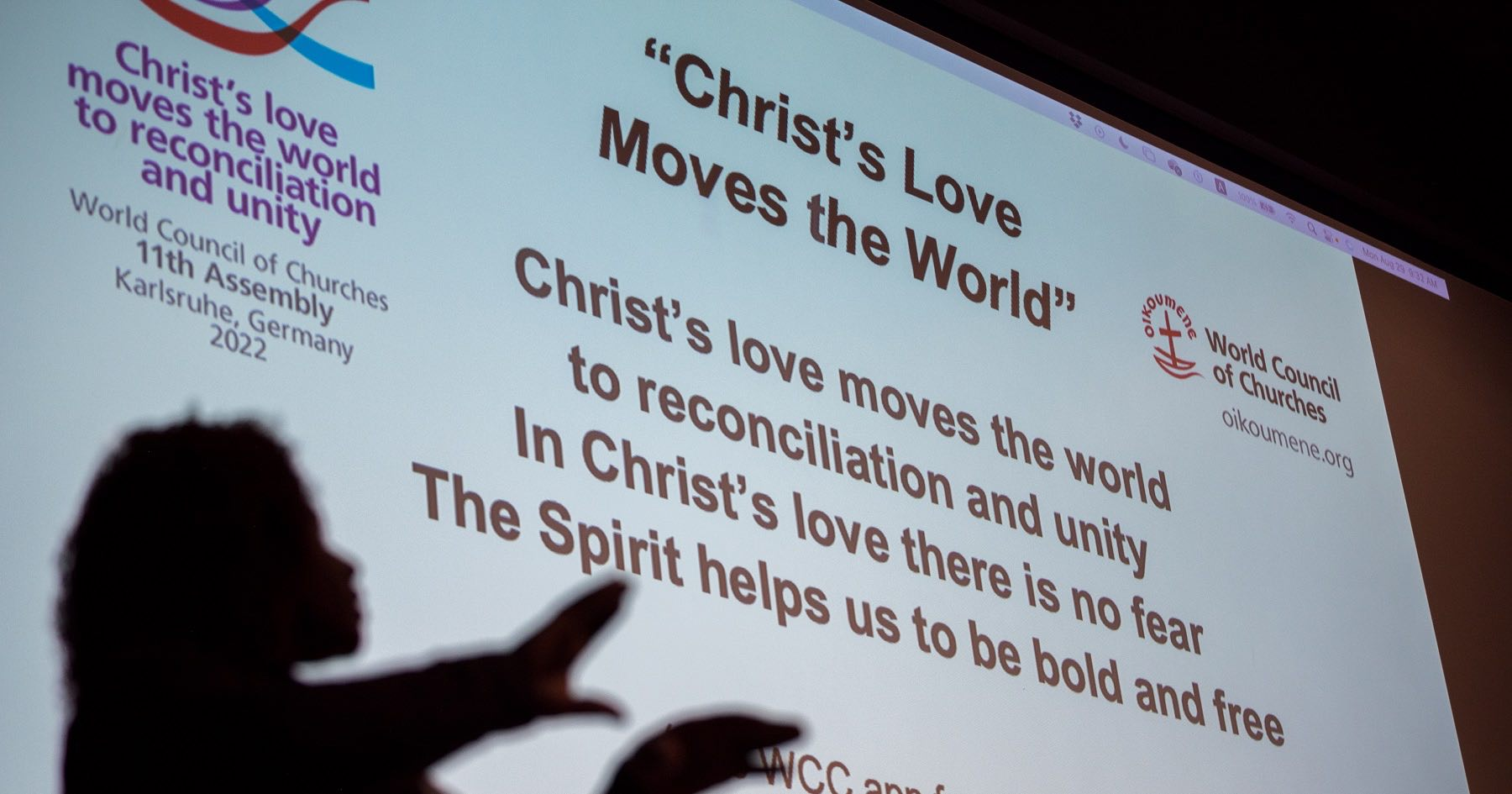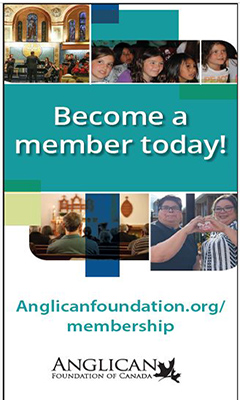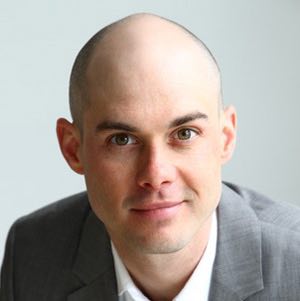I remember distinctly, in the final year of my undergraduate degree in religion and theology, being compelled and captivated by the prayer of Jesus in John 17: “That they may be one.” (John 17:20–23) This prayer, which is just before the passion, is one that clearly conveys something close to Jesus’ heart in his last days. It was during this period of my life that I first took an interest in the World Council of Churches (WCC), which is an entity that (since 1948) has intentionally pursued a visible manifestation of the oneness for which Jesus prayed. So, when I saw the call for applications to represent the WCC at the 11th Assembly, I was keen to put my name forward.
I joked, when I got to the WCC Assembly, that I had signed up for the biggest synod available… and that isn’t too far from what it was like — with the joys and frustrations that entails. For the church nerds, however, when you find you are being addressed by the Bishop of Alexandria or the Metropolitan of Antioch, not to mention the Prior of the Taizé Community or the Archbishop of Canterbury, it feels like an historic gathering.
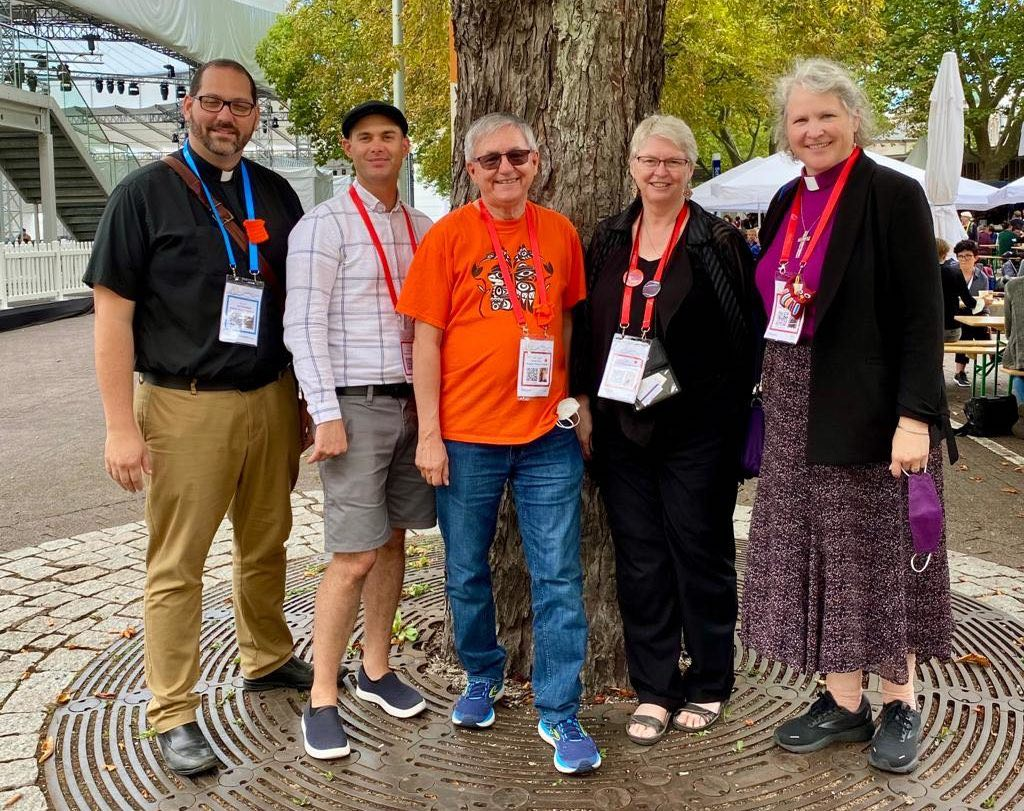
On the floor, we heard passionate discussion on the major geopolitical issues around the world: the climate emergency; the war in Ukraine (there were members from both Ukrainian and Russian churches present); the ongoing injustice in Israel/Palestine; the ongoing effects of colonization and economic exploitation; and many other important issues. As a body, we worked on statements and reached a consensus on what we could collectively say. I am proud of our Canadian Anglican delegation, who advocated to highlight the legacy of colonization and reconciliation. A statement was produced on this topic, along with statements on the other major topics addressed:
Statement on Reconciliation with Indigenous Peoples
The Living Planet: Seeking a Just and Sustainable Global Community
The Things that Make for Peace: Moving the World to Reconciliation and Unity
War in Ukraine, Peace and Justice in the European Region
Seeking Justice and Peace for All in the Middle East
These statements are great resources as we grapple with the vital issues we face as a global community. It is easy for us, and perhaps even part of our human condition, to limit our thinking to what is directly in our immediate realm of awareness. The WCC was a reminder to me, and I think to all present, that the world is smaller than we think, and we are interconnected in more ways than we realize.
I strive to appreciate the ordinary, so, for me, some of the more mundane encounters have lingered as highlights, and I would like to share a couple of those with you.
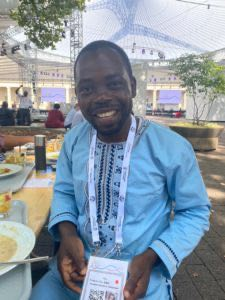
One day, at lunch, I sat with Frederick, who is a minister to a “small” congregation of about 500 people in southern Cameroon. In asking about his context, Frederick explained a bit about the ongoing and currently high tensions between the francophone and anglophone populations and political factions. My ignorance was on full display, as he talked about how people in his community are being taken, killed, and raped, and he is at risk if he preaches anything critical of those in power.
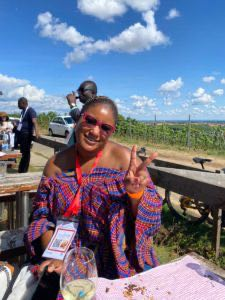
On the weekend, on one of the excursions that were organized, I met a young woman from Zambia who works in a non-profit organization with pregnant teens. She is a member of the Anglican Cathedral in Lusaka and hopes to become the first woman ordained in the Anglican Church of Zambia. She was elected to the WCC central committee and has a bright future ahead of her.
Another day, at lunch, I got chatting with a minister from the Church of Denmark, a state church funded by the church tax. He explained that the clergy are, in many ways, civil servants, and while the church tax is a voluntary tax, it is still paid by the majority of the citizens. They are facing shrinking interest and worship numbers to be sure, but not the same kind of funding shortages that we are facing.
For me, these snapshots of different contexts and concerns highlighted the uniqueness of our work and situation here in Canada. But they also highlight a common thread: taking the faith traditions we have received and moving according to where we are and what we discern as the faithful way forward. It is this kind of contextualizing of faith, which attends to the particularities of place while being connected to the broader whole, that creates the beauty and frustration of the ecumenical movement. I am grateful for the opportunity to have served as a delegate and hope to continue to reflect and learn from that experience through my work in the synod office.

